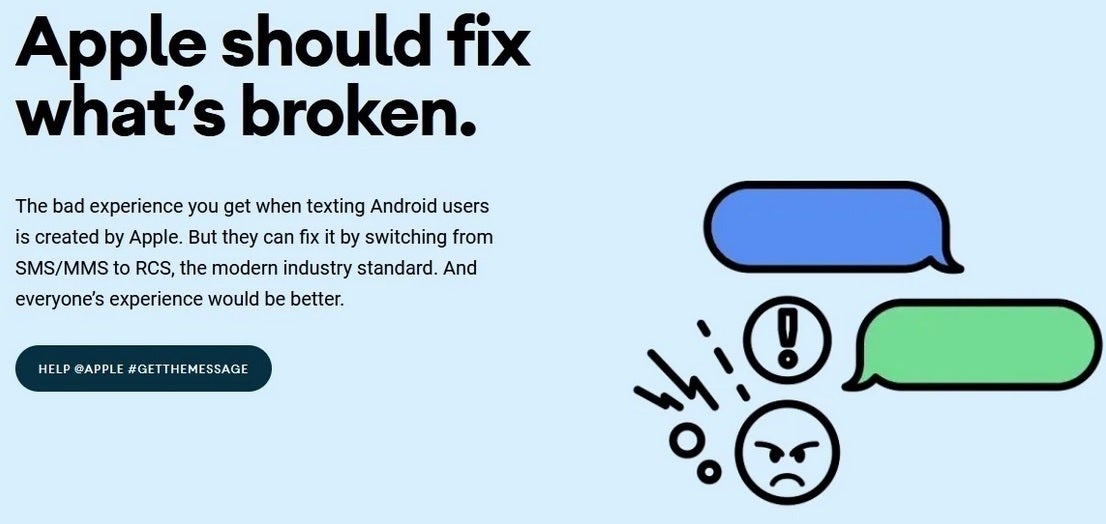Apple quietly tests iMessage feature that might reduce green bubble bullying

Apple failed to mention one big thing during the WWDC 2023 keynote on Monday and considering the implications it is somewhat surprising that it wasn't brought up during the event. While iOS 17 adds some cool new features to the iPhone, it also will allow iPhone users in a group iMessage chat to continue receiving some iMessage-like features even if the chat is "invaded" by an Android user. At least that is the experience discovered by XDA Developers after installing the first iOS 17 beta.
In the first iOS 17 beta, Apple allows iOS users to keep some iMessage features even with an Android user present
As you might know by now, all of the lovely features that iMessage gives iOS users such as end-to-end encryption, read receipts, typing indicators, higher-quality images and video, and blue text bubbles all go away and the messaging platform reverts back to ancient SMS/MMS features once an Android user becomes part of a group chat. But to be fair, all of these features are part of the RCS Chat experience for Android users and they disappear too once an iOS user invades a previously all RCS group chat.

Since last year, Google has been pressuring Apple to support RCS
But according to XDA, on the first iOS 17 beta it seems that if one Android user joins a previously all-iOS messaging session, the iPhone users will still get to edit texts, reply in threads, and receive the high quality images and video that they would normally get in iMessage. The difference is that only the Android interloper will not experience any of these. For example, let's say that there are three iOS users in a group chat and one Android user. The latter will not be able to see an edited text or a high-quality video that the other three can.
In other words, an Android user participating in a group chat consisting of iOS users will have to suffer with the typical low-quality video that SMS/MMS delivers while iOS users will see iMessage-quality video. For example, XDA sent images to a group chat made up of multiple iOS users and one Android user. The former received images sent from an iPhone at a 4032x3024 resolution in a 2.02MB file. The image was received by the Android phone with a 2048x1536 resolution in a file weighing in at 725KB.
And as XDA notes, the difference in video is even larger. A 21-second 4K 60fps video sent to the group (157MB) was received by the iPhone users in the chat as a 720p 30fps video that was 17.9MB in size. That's the same quality that would be received over iMessage. The Android user received a clip with a 176x144 resolution and a 10fps frame rate. The file size was severely compressed to 293KB.
Is this the first step toward detente and lasting peace in the smartphone world?
We can't say whether this is the first step by Apple toward detente and a lasting peace among iOS and Android users. After all, it appears that not all iMessage features will be available to iOS users if an Android user "breaks" iMessage with his/her participation in a group chat. And these missing features still might be enough to create hostility between iOS and Android device owners.
Still, if this feature makes it to the final version of iOS 17, it might lessen some of the anger lobbed at an Android user who is the minority in a group chat. But what needs to happen is for both Apple and Google to create one unified cross-platform messaging service that will allow iMessage and RCS users to come together and chat without any degradation in image quality or loss of any features.
This is something that Google has been pushing Apple to allow as recently as last month at Google I/O. Continuing to give iOS users some iMessage features while on a group chat with an Android user is important and we shouldn't overlook what this means. But the point is that Apple shouldn't stop here. The ultimate goal should be a unified feature-rich messaging platform that both iOS and Android users can enjoy.
Follow us on Google News













Things that are NOT allowed:
To help keep our community safe and free from spam, we apply temporary limits to newly created accounts: